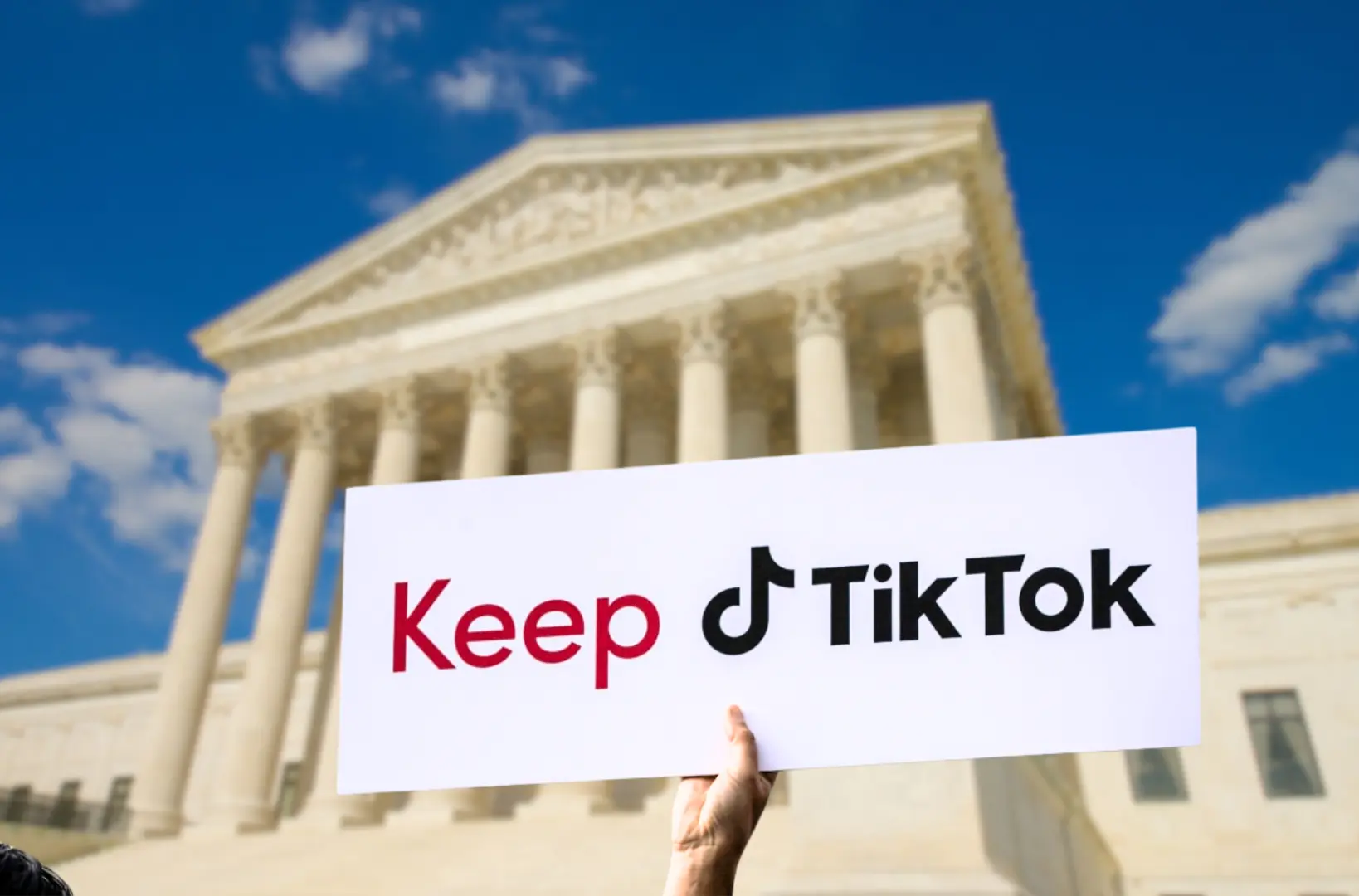TikTok, one of the most popular social media platforms in the world, is now engaged in a historic legal battle as it takes its fight to the U.S. Supreme Court to challenge a potential ban. The short-form video app, owned by the Chinese company ByteDance, has been under intense scrutiny from U.S. lawmakers, who argue that it poses a national security risk due to its connections with China. The battle between TikTok and the U.S. government has been ongoing for several years, but with recent legislative moves threatening the app’s future in the country, TikTok is now making a final stand in the highest court of the land.
This legal case carries significant implications—not just for TikTok’s 170 million U.S. users, but also for the broader digital landscape, data privacy laws, corporate governance, and international relations between the U.S. and China. This article will explore the origins of the conflict, the legal arguments being made, the potential outcomes, and what this means for the future of tech regulation.
The Origins of TikTok’s Ban Threat in the U.S.
TikTok’s problems in the U.S. began in 2020 during the Trump administration, when concerns were raised about its Chinese ownership and the potential for data to be accessed by the Chinese government. The administration attempted to force ByteDance to sell TikTok’s U.S. operations to an American company, citing national security risks. Microsoft and Oracle were among the companies that expressed interest in acquiring TikTok, but the deal never materialized due to legal challenges and changes in administration.
Under President Biden, the scrutiny on TikTok did not fade. While his administration initially took a less aggressive approach, concerns from lawmakers about data security, content moderation, and potential foreign influence grew stronger. In 2023 and 2024, multiple bills were introduced in Congress to either ban TikTok or force its divestiture from ByteDance.
In early 2024, a bipartisan bill was passed in Congress, requiring ByteDance to sell TikTok’s U.S. operations within a set timeframe or face a ban from app stores and internet providers. President Biden signed the bill into law, leading TikTok and ByteDance to escalate their legal fight and take the case to the U.S. Supreme Court.
Why Is the U.S. Government Targeting TikTok?
The U.S. government’s concerns about TikTok revolve around several key issues:
- Data Privacy and National Security – Lawmakers worry that ByteDance, being a Chinese company, could be compelled by the Chinese Communist Party (CCP) to hand over user data. Despite TikTok’s assurances that U.S. data is stored separately and not accessible to Chinese authorities, concerns persist.
- Algorithmic Influence and Propaganda – There are fears that the Chinese government could manipulate TikTok’s algorithm to spread misinformation, promote Chinese government narratives, or suppress certain content that is unfavorable to China.
- Children’s Safety and Content Moderation – While not exclusive to TikTok, concerns about children’s exposure to harmful content, addictive algorithms, and privacy violations have also fueled the push for stricter regulation.
- Economic Competition – Some analysts argue that the move against TikTok is also partially influenced by efforts to curb competition for American tech giants like Meta (Facebook, Instagram), Google (YouTube), and Snapchat, which have struggled to replicate TikTok’s success.
TikTok’s Legal Arguments in the Supreme Court
TikTok’s decision to take the case to the Supreme Court rests on several legal arguments, including constitutional and economic concerns. Here are the primary points TikTok and ByteDance are expected to present:
1. Violation of the First Amendment (Free Speech)
TikTok argues that banning the platform violates the First Amendment rights of its users by restricting their freedom of expression. The company claims that TikTok is a major communication tool for millions of Americans, and shutting it down would be akin to government censorship.
2. Lack of Due Process (Fifth Amendment Violation)
TikTok contends that the government has not provided clear evidence that it poses a national security threat. By enforcing a ban without solid proof, the government is violating the due process rights of the company.
3. Targeting a Specific Company Unfairly
TikTok points out that other social media platforms, such as Facebook, Instagram, and YouTube, collect similar data, yet they are not facing the same level of scrutiny. This selective enforcement raises concerns about fairness and equal treatment under the law.
4. Economic Harm and Precedent for Other Tech Companies
A TikTok ban would not just affect the company—it would also impact millions of content creators, advertisers, and businesses that rely on the platform for income. Additionally, this case sets a dangerous precedent that could lead to future bans on other foreign-owned apps.
What Are the Potential Outcomes?
The Supreme Court’s ruling will have far-reaching consequences. Here are the possible outcomes:
- TikTok Wins: The Ban is Overturned
- If the Supreme Court rules in TikTok’s favor, the app will continue operating in the U.S. without ByteDance being forced to sell it.
- This would reinforce digital free speech protections and limit the government’s ability to ban tech platforms based on national security concerns.
- The Ban is Upheld: TikTok Must Be Sold or Shut Down
- If the Court upholds the law, ByteDance will be forced to divest TikTok’s U.S. operations, or the app will be banned.
- This could set a precedent for more government intervention in foreign-owned digital platforms.
- A Compromise Decision
- The Court could allow TikTok to remain operational under strict regulations, such as increased oversight of data handling or a restructuring that keeps ByteDance involved but limits its control.
Implications for the Future of Tech and Free Speech
This case goes beyond just TikTok. It raises critical questions about:
- Government Regulation of Social Media – If TikTok is banned, could the U.S. government use similar justifications to regulate or ban other social media platforms in the future?
- International Business Relations – A forced divestiture could escalate tensions between the U.S. and China, potentially leading to retaliatory actions against American companies in China.
- Digital Rights and Internet Freedom – Free speech advocates warn that banning a social media app due to its foreign ownership could set a precedent for broader internet censorship policies.
Conclusion
TikTok’s legal fight at the U.S. Supreme Court is one of the most significant tech-related legal battles in recent history. The outcome will not only determine the fate of the app in the U.S. but also shape policies surrounding digital privacy, free speech, and government intervention in tech.
For now, TikTok remains available as the legal process unfolds, but the case will have lasting effects on how digital platforms operate in the U.S. and beyond. Whether TikTok wins or loses, this battle will be remembered as a defining moment in the intersection of technology, law, and global politics.
As businesses, content creators, and users wait for the final verdict, one thing is clear—this is more than just about one app. It’s about the future of the internet itself.

Jahanzaib is a Content Contributor at Technado, specializing in cybersecurity. With expertise in identifying vulnerabilities and developing robust solutions, he delivers valuable insights into securing the digital landscape.








